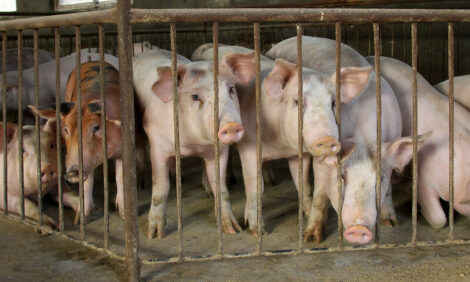



Reduced Water Use Equals Reduced Costs
CANADA - A High River Alberta pork producer says water consumption in the grower barn can be slashed by an average of about 35 percent by simply switching from standard nipple water drinkers to ball bit drinkers, writes Bruce Cochrane.In an effort to assess the economic and environmental value of reduced water use, High River, Alberta based JV Farms compared the volumes of water used by pigs drinking from the standard nipple drinker to those drinking from a ball bite drinker over 12 months.
The study monitored six batches of pigs, totaling three thousand starting at 25 kilograms and going up to about 60 kilograms.
Dennis McKerracher says the ball bite group used an average of 35 percent less water with no negative effects on the pigs.
Dennis McKerracher-High River, Alberta Pork Producer
Some of the negative effects I wanted to make sure didn't take place was lack of performance.
If the animals didn't grow as fast, the feed conversion was affected that would discount the project.
I was also concerned about the consistency of the manure.
Would that create a problem for the manure management that we have on our farm?
It did not.
We watched the pigs to make sure there was no behavior or welfare issues, there were none.
Positive effects, the 35 percent less water is just huge, when you look at the energy saving from that, the less frequent spreading of manure a higher nutrient value of the manure and an unexpected benefit was barn management.
We got a feel from recording the numbers daily as to weather effects and other effects so, if there was an anticipated number that we should have seen say on a certain day and it wasn't there, we can investigate and find out maybe there was a feed issue or this issue or that issue or maybe it was just a simple leak.
McKerracher notes an independent economic analysis of the study, conducted by the Guelph based George Morris Center, determined the reduced water consumption resulted in a 55 cent per head saving.
ThePigSite News Desk








